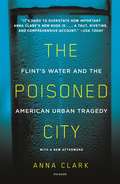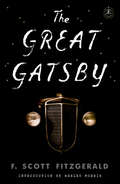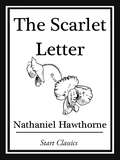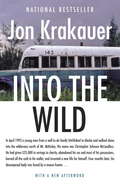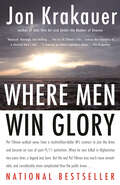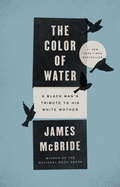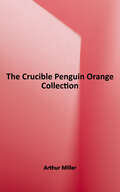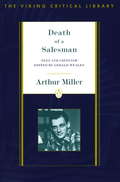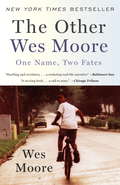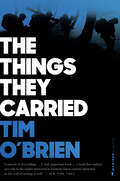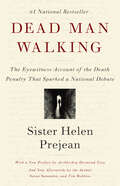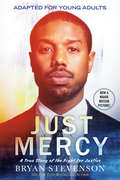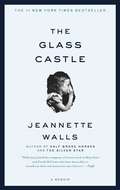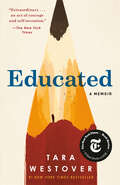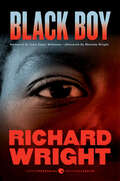Special Collections
Plymouth Public Schools High School ELA: 11th Grade
Description: Plymouth Public Schools High School ELA: 11th Grade required and choice books.
- Table View
- List View
The Poisoned City
by Anna ClarkWhen the people of Flint, Michigan, turned on their faucets in April 2014, the water pouring out was poisoned with lead and other toxins. Through a series of disastrous decisions, the state government had switched the city’s water supply to a source that corroded Flint’s aging lead pipes. Complaints about the foul-smelling water were dismissed: the residents of Flint, mostly poor and African American, were not seen as credible, even in matters of their own lives.It took eighteen months of activism by city residents and a band of dogged outsiders to force the state to admit that the water was poisonous. By that time, twelve people had died and Flint’s children had suffered irreparable harm. The long battle for accountability and a humane response to this man-made disaster has only just begun.In the first full account of this American tragedy, The Poisoned City recounts the gripping story of Flint’s poisoned water through the people who caused it, suffered from it, and exposed it. It is a chronicle of one town, but could also be about any American city, all made precarious by the neglect of infrastructure and the erosion of democratic decision making. Places like Flint are set up to fail—and for the people who live and work in them, the consequences can be fatal.
The Great Gatsby
by F. Scott FitzgeraldThe classic novel that continues to haunt our understanding of ambition, love, entitlement, and the American Dream—with an exclusive discussion guide and an introduction by Pulitzer Prize–winning critic Wesley Morris Nick Carraway is an aspiring writer; his cousin, Daisy, is married to the fabulously wealthy Tom Buchanan. Their neighbor, Jay Gatsby, throws extravagant and extraordinary parties in the exclusive and hallowed neighborhood of West Egg. The entanglements between these four characters form the backbone of F. Scott Fitzgerald’s greatest work.
When it was first published in 1925, The Great Gatsby was heralded “a mystical, glamorous story of today” (The New York Times). Since then, the story of Jay Gatsby and his love for the treacherous, effervescent Daisy Buchanan has become a staple in high school and college classrooms, a beloved favorite of readers everywhere, and the #2 entry in the Modern Library’s own list of the best novels of the twentieth century.
The Scarlet Letter
by Nathaniel HawthorneFor nearly a century and a half, Hawthorne's masterpiece has mesmerized readers and critics alike. One of the greatest American novels, its themes of sin, guilt, and redemption, woven through a story of adultery in the early days of the Massachusetts Colony, are revealed with remarkable psychological penetration and understanding of the human heart.
A selection of the Common Core State Standards Initiative.
[This text is listed as an example that meets Common Core Standards in English language arts in grades 11-12 at http://www.corestandards.org.]
Into the Wild
by Jon KrakauerNATIONAL BESTSELLER • In April 1992 a young man from a well-to-do family hitchhiked to Alaska and walked alone into the wilderness north of Mt. McKinley. Four months later, his decomposed body was found by a moose hunter. This is the unforgettable story of how Christopher Johnson McCandless came to die."It may be nonfiction, but Into the Wild is a mystery of the highest order." —Entertainment WeeklyMcCandess had given $25,000 in savings to charity, abandoned his car and most of his possessions, burned all the cash in his wallet, and invented a new life for himself. Not long after, he was dead. Into the Wild is the mesmerizing, heartbreaking tale of an enigmatic young man who goes missing in the wild and whose story captured the world&’s attention. Immediately after graduating from college in 1991, McCandless had roamed through the West and Southwest on a vision quest like those made by his heroes Jack London and John Muir. In the Mojave Desert he abandoned his car, stripped it of its license plates, and burned all of his cash. He would give himself a new name, Alexander Supertramp, and, unencumbered by money and belongings, he would be free to wallow in the raw, unfiltered experiences that nature presented. Craving a blank spot on the map, McCandless simply threw the maps away. Leaving behind his desperate parents and sister, he vanished into the wild.Jon Krakauer constructs a clarifying prism through which he reassembles the disquieting facts of McCandless's short life. Admitting an interest that borders on obsession, he searches for the clues to the drives and desires that propelled McCandless. When McCandless's innocent mistakes turn out to be irreversible and fatal, he becomes the stuff of tabloid headlines and is dismissed for his naiveté, pretensions, and hubris. He is said to have had a death wish but wanting to die is a very different thing from being compelled to look over the edge. Krakauer brings McCandless's uncompromising pilgrimage out of the shadows, and the peril, adversity, and renunciation sought by this enigmatic young man are illuminated with a rare understanding—and not an ounce of sentimentality. Into the Wild is a tour de force. The power and luminosity of Jon Krakauer's stoytelling blaze through every page.
Where Men Win Glory
by Jon KrakauerNATIONAL BESTSELLER • A "gripping book about this extraordinary man who lived passionately and died unnecessarily" (USA Today) in post-9/11 Afghanistan, from the bestselling author of Into the Wild and Into Thin Air.In 2002, Pat Tillman walked away from a multimillion-dollar NFL contract to join the Army and became an icon of American patriotism. When he was killed in Afghanistan two years later, a legend was born. But the real Pat Tillman was much more remarkable, and considerably more complicated than the public knew. Sent first to Iraq—a war he would openly declare was &“illegal as hell&” —and eventually to Afghanistan, Tillman was driven by emotionally charged, sometimes contradictory notions of duty, honor, justice, and masculine pride, and he was determined to serve his entire three-year commitment. But on April 22, 2004, his life would end in a barrage of bullets fired by his fellow soldiers. Though obvious to most of the two dozen soldiers on the scene that a ranger in Tillman&’s own platoon had fired the fatal shots, the Army aggressively maneuvered to keep this information from Tillman&’s family and the American public for five weeks following his death. During this time, President Bush used Tillman&’s name to promote his administration&’ s foreign policy. Long after Tillman&’s nationally televised memorial service, the Army grudgingly notified his closest relatives that he had &“probably&” been killed by friendly fire while it continued to dissemble about the details of his death and who was responsible. Drawing on Tillman&’s journals and letters and countless interviews with those who knew him and extensive research in Afghanistan, Jon Krakauer chronicles Tillman&’s riveting, tragic odyssey in engrossing detail highlighting his remarkable character and personality while closely examining the murky, heartbreaking circumstances of his death. Infused with the power and authenticity readers have come to expect from Krakauer&’s storytelling, Where Men Win Glory exposes shattering truths about men and war. This edition has been updated to reflect new developments and includes new material obtained through the Freedom of Information Act.
The Color of Water
by James McbrideWho is Ruth McBride Jordan? A self-declared "light-skinned" woman evasive about her ethnicity, yet steadfast in her love for her twelve black children. James McBride, journalist, musician, and son, explores his mother's past, as well as his own upbringing and heritage, in a poignant and powerful debut, The Color Of Water: A Black Man's Tribute to His White Mother.
The son of a black minister and a woman who would not admit she was white, James McBride grew up in "orchestrated chaos" with his eleven siblings in the poor, all-black projects of Red Hook, Brooklyn. "Mommy," a fiercely protective woman with "dark eyes full of pep and fire," herded her brood to Manhattan's free cultural events, sent them off on buses to the best (and mainly Jewish) schools, demanded good grades, and commanded respect. As a young man, McBride saw his mother as a source of embarrassment, worry, and confusion—and reached thirty before he began to discover the truth about her early life and long-buried pain.
In The Color of Water, McBride retraces his mother's footsteps and, through her searing and spirited voice, recreates her remarkable story. The daughter of a failed itinerant Orthodox rabbi, she was born Rachel Shilsky (actually Ruchel Dwara Zylska) in Poland on April 1, 1921. Fleeing pogroms, her family emigrated to America and ultimately settled in Suffolk, Virginia, a small town where anti-Semitism and racial tensions ran high. With candor and immediacy, Ruth describes her parents' loveless marriage; her fragile, handicapped mother; her cruel, sexually-abusive father; and the rest of the family and life she abandoned.
At seventeen, after fleeing Virginia and settling in New York City, Ruth married a black minister and founded the all- black New Brown Memorial Baptist Church in her Red Hook living room. "God is the color of water," Ruth McBride taught her children, firmly convinced that life's blessings and life's values transcend race. Twice widowed, and continually confronting overwhelming adversity and racism, Ruth's determination, drive and discipline saw her dozen children through college—and most through graduate school. At age 65, she herself received a degree in social work from Temple University.
Interspersed throughout his mother's compelling narrative, McBride shares candid recollections of his own experiences as a mixed-race child of poverty, his flirtations with drugs and violence, and his eventual self- realization and professional success. The Color of Water touches readers of all colors as a vivid portrait of growing up, a haunting meditation on race and identity, and a lyrical valentine to a mother from her son.
The Crucible
by Arthur MillerFirst produced in 1953, the Crucible brilliantly explores the threshold between individual guilt and mass hysteria, personal spite and collective evil. It is a play that is not only relentlessly suspenseful and vastly moving but that compels readers to fathom their hearts and consciences in ways that only the greatest theatre ever can.
Death of a Salesman
by Arthur Miller and Gerald WealesThe Pulitzer Prize-winning tragedy of a salesman's deferred American dream Ever since it was first performed in 1949, Death of a Salesman has been recognized as a milestone of the American theater. In the person of Willy Loman, the aging, failing salesman who makes his living riding on a smile and a shoeshine, Arthur Miller redefined the tragic hero as a man whose dreams are at once insupportably vast and dangerously insubstantial. He has given us a figure whose name has become a symbol for a kind of majestic grandiosity--and a play that compresses epic extremes of humor and anguish, promise and loss, between the four walls of an American living room."By common consent, this is one of the finest dramas in the whole range of the American theater." --Brooks Atkinson, The New York Times"So simple, central, and terrible that the run of playwrights would neither care nor dare to attempt it." --Time
The Other Wes Moore
by Wes MooreThe chilling truth is that his story could have been mine. The tragedy is that my story could have been his.
Two kids named Wes Moore were born blocks apart within a year of each other. Both grew up fatherless in similar Baltimore neighborhoods and had difficult childhoods; both hung out on street corners with their crews; both ran into trouble with the police. How, then, did one grow up to be a Rhodes Scholar, decorated veteran, White House Fellow, and business leader, while the other ended up a convicted murderer serving a life sentence? Wes Moore, the author of this fascinating book, sets out to answer this profound question. In alternating narratives that take readers from heart-wrenching losses to moments of surprising redemption, The Other Wes Moore tells the story of a generation of boys trying to find their way in a hostile world.
BONUS: This edition contains a new afterword and a The Other Wes Moore discussion guide.
The Things They Carried
by Tim O'BrienA classic work of American literature that has not stopped changing minds and lives since it burst onto the literary scene, The Things They Carried is a ground-breaking meditation on war, memory, imagination, and the redemptive power of storytelling. The Things They Carried depicts the men of Alpha Company: Jimmy Cross, Henry Dobbins, Rat Kiley, Mitchell Sanders, Norman Bowker, Kiowa, and the character Tim O'Brien, who has survived his tour in Vietnam to become a father and writer at the age of forty-three. Taught everywhere--from high school classrooms to graduate seminars in creative writing--it has become required reading for any American and continues to challenge readers in their perceptions of fact and fiction, war and peace, courage and fear and longing. The Things They Carried won France's prestigious Prix du Meilleur Livre Etranger and the Chicago Tribune Heartland Prize; it was also a finalist for the Pulitzer Prize and the National Book Critics Circle Award.
Dead Man Walking
by Helen Prejean#1 NATIONAL BESTSELLER • A profoundly moving spiritual journey through our system of capital punishment and an unprecedented look at the human consequences of the death penalty • "Stunning moral clarity.&” —The Washington Post Book World • Basis for the award-winning major motion picture starring Susan Sarandon and Sean Penn"Sister Prejean is an excellent writer, direct and honest and unsentimental. . . . She almost palpably extends a hand to her readers.&” —The New York Times Book Review In 1982, Sister Helen Prejean became the spiritual advisor to Patrick Sonnier, the convicted killer of two teenagers who was sentenced to die in the electric chair of Louisiana&’s Angola State Prison. In the months before Sonnier&’s death, the Roman Catholic nun came to know a man who was as terrified as he had once been terrifying. She also came to know the families of the victims and the men whose job it was to execute—men who often harbored doubts about the rightness of what they were doing.Out of that dreadful intimacy comes a profoundly moving spiritual journey through our system of capital punishment. Here Sister Helen confronts both the plight of the condemned and the rage of the bereaved, the fears of a society shattered by violence and the Christian imperative of love. On its original publication in 1993, Dead Man Walking emerged as an unprecedented look at the human consequences of the death penalty. Now, some two decades later, this story—which has inspired a film, a stage play, an opera and a musical album—is more gut-wrenching than ever, stirring deep and life-changing reflection in all who encounter it.
Just Mercy
by Bryan StevensonIn this young adult adaptation of the acclaimed bestselling Just Mercy, which the New York Times calls "as compelling as To Kill a Mockingbird, and in some ways more so," Bryan Stevenson delves deep into the broken U.S. justice system, detailing from his personal experience his many challenges and efforts as a lawyer and social advocate, especially on behalf of America's most rejected and marginalized people.
In this very personal work--proceeds of which will go to charity--Bryan Stevenson recounts many and varied stories of his work as a lawyer in the U.S. criminal justice system on behalf of those in society who have experienced some type of discrimination and/or have been wrongly accused of a crime and who deserve a powerful advocate and due justice under the law.
Through the Equal Justice Initiative (EJI), an organization Stevenson founded as a young lawyer and for which he currently serves as Executive Director, this important work continues. EJI strives to end mass incarceration and excessive punishment in the United States, working to protect basic human rights for the most vulnerable people in American society.
The Glass Castle
by Jeannette WallsJeannette Walls grew up with parents whose ideals and stubborn nonconformity were both their curse and their salvation. Rex and Rose Mary Walls had four children. In the beginning, they lived like nomads, moving among Southwest desert towns, camping in the mountains.
Rex was a charismatic, brilliant man who, when sober, captured his children's imagination, teaching them physics, geology, and above all, how to embrace life fearlessly. Rose Mary, who painted and wrote and couldn't stand the responsibility of providing for her family, called herself an "excitement addict." Cooking a meal that would be consumed in fifteen minutes had no appeal when she could make a painting that might last forever.
Later, when the money ran out, or the romance of the wandering life faded, the Walls retreated to the dismal West Virginia mining town--and the family--Rex Walls had done everything he could to escape. He drank. He stole the grocery money and disappeared for days. As the dysfunction of the family escalated, Jeannette and her brother and sisters had to fend for themselves, supporting one another as they weathered their parents' betrayals and, finally, found the resources and will to leave home.
What is so astonishing about Jeannette Walls is not just that she had the guts and tenacity and intelligence to get out, but that she describes her parents with such deep affection and generosity. Hers is a story of triumph against all odds, but also a tender, moving tale of unconditional love in a family that despite its profound flaws gave her the fiery determination to carve out a successful life on her own terms. For two decades, Jeannette Walls hid her roots. Now she tells her own story. A regular contributor to MSNBC.com, she lives in New York and Long Island and is married to the writer John Taylor.
A New York Times Bestseller
Educated
by Tara Westover#1 NEW YORK TIMES, WALL STREET JOURNAL, AND BOSTON GLOBE BESTSELLER • One of the most acclaimed books of our time: an unforgettable memoir about a young woman who, kept out of school, leaves her survivalist family and goes on to earn a PhD from Cambridge University&“Extraordinary . . . an act of courage and self-invention.&”—The New York TimesNAMED ONE OF THE TEN BEST BOOKS OF THE YEAR BY THE NEW YORK TIMES BOOK REVIEW • ONE OF PRESIDENT BARACK OBAMA&’S FAVORITE BOOKS OF THE YEAR • BILL GATES&’S HOLIDAY READING LIST • A KIRKUS REVIEWS BEST NONFICTION BOOK OF THE CENTURY • FINALIST: National Book Critics Circle&’s Award In Autobiography and John Leonard Prize For Best First Book • PEN/Jean Stein Book Award • Los Angeles Times Book PrizeBorn to survivalists in the mountains of Idaho, Tara Westover was seventeen the first time she set foot in a classroom. Her family was so isolated from mainstream society that there was no one to ensure the children received an education, and no one to intervene when one of Tara&’s older brothers became violent. When another brother got himself into college, Tara decided to try a new kind of life. Her quest for knowledge transformed her, taking her over oceans and across continents, to Harvard and to Cambridge University. Only then would she wonder if she&’d traveled too far, if there was still a way home.&“Beautiful and propulsive . . . Despite the singularity of [Westover&’s] childhood, the questions her book poses are universal: How much of ourselves should we give to those we love? And how much must we betray them to grow up?&”—VogueONE OF THE BEST BOOKS OF THE YEAR: The Washington Post, O: The Oprah Magazine, Time, NPR, Good Morning America, San Francisco Chronicle, The Guardian, The Economist, Financial Times, Newsday, New York Post, theSkimm, Refinery29, Bloomberg, Self, Real Simple, Town & Country, Bustle, Paste, Publishers Weekly, Library Journal, LibraryReads, Book Riot, Pamela Paul, KQED, New York Public Library
Black Boy [Seventy-fifth Anniversary Edition]
by Richard WrightA special 75th anniversary edition of Richard Wright's powerful and unforgettable memoir, with a new foreword by John Edgar Wideman and an afterword by Malcolm Wright, the author’s grandson.When it exploded onto the literary scene in 1945, Black Boy was both praised and condemned. Orville Prescott of the New York Times wrote that “if enough such books are written, if enough millions of people read them maybe, someday, in the fullness of time, there will be a greater understanding and a more true democracy.” Yet from 1975 to 1978, Black Boy was banned in schools throughout the United States for “obscenity” and “instigating hatred between the races.”Wright’s once controversial, now celebrated autobiography measures the raw brutality of the Jim Crow South against the sheer desperate will it took to survive as a black boy. Enduring poverty, hunger, fear, abuse, and hatred while growing up in the woods of Mississippi, Wright lied, stole, and raged at those around him—whites indifferent, pitying, or cruel and blacks resentful of anyone trying to rise above their circumstances. Desperate for a different way of life, he may his way north, eventually arriving in Chicago, where he forged a new path and began his career as a writer. At the end of Black Boy, Wright sits poised with pencil in hand, determined to “hurl words into this darkness and wait for an echo.” Seventy-five year later, his words continue to reverberate. “To read Black Boy is to stare into the heart of darkness,” John Edgar Wideman writes in his foreword. “Not the dark heart Conrad searched for in Congo jungles but the beating heart I bear.” One of the great American memoirs, Wright’s account is a poignant record of struggle and endurance—a seminal literary work that illuminates our own time.
